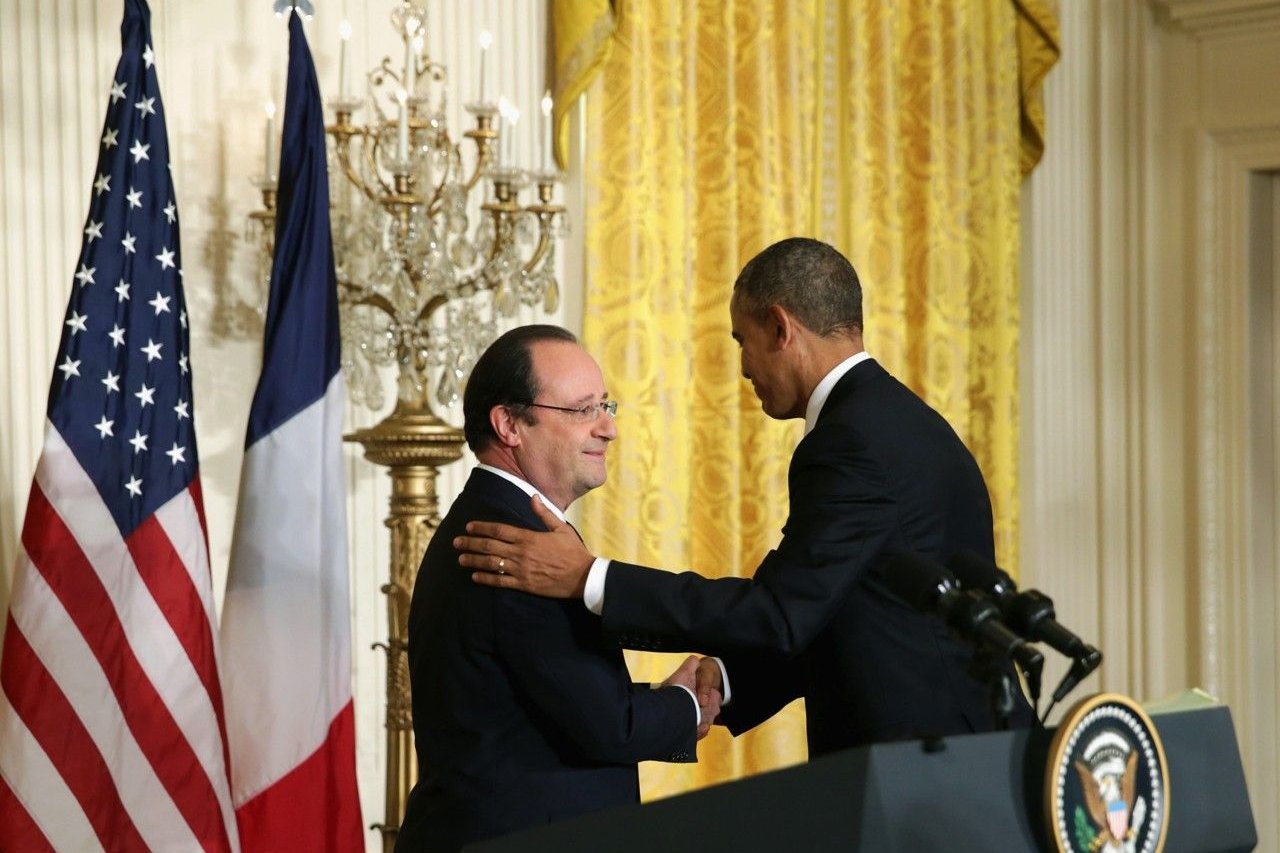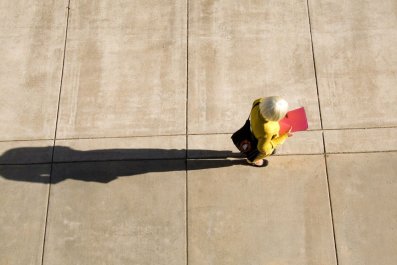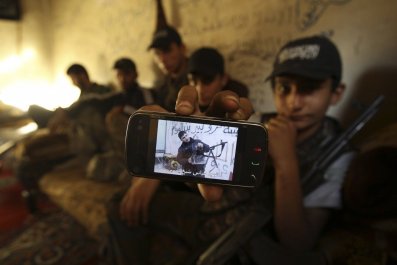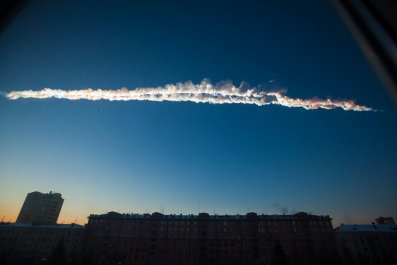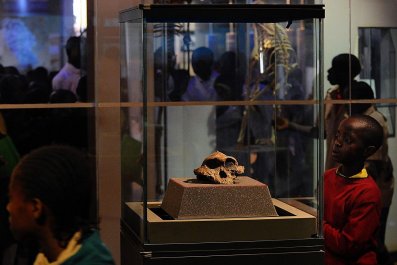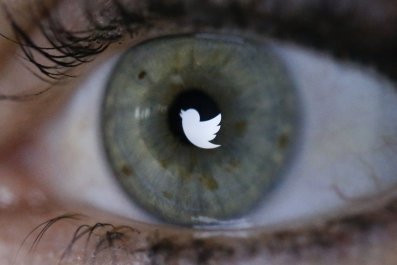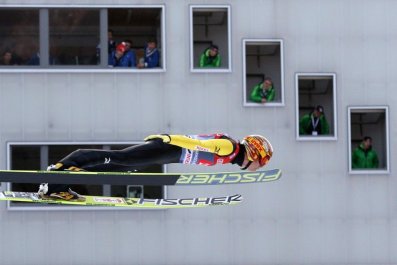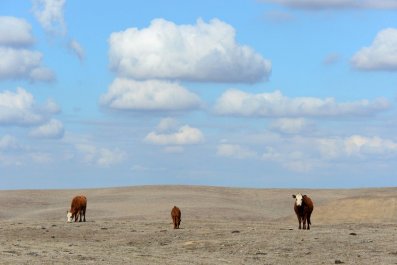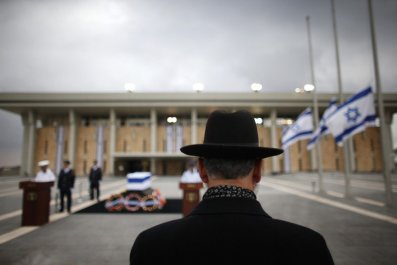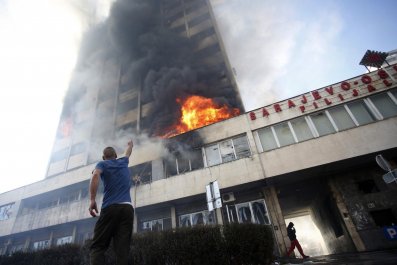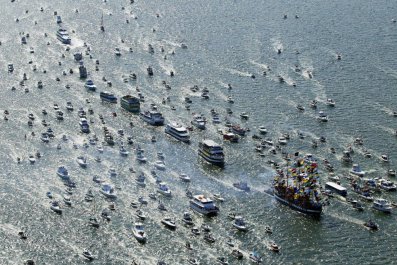This week's state visit of President François Hollande of France to the White House underlined a remarkable transformation: America is fast becoming France, as France increasingly resembles America.
The head of France's Socialist party, Hollande these days talks about an economy that would stress "supply," while President Obama revolutionizes America's health-care system in a way that his detractors fear, and some supporters hope, will lead to socialized medicine.
While running for president, Hollande vowed to increase taxes on his country's wealthiest to 75 percent. Now he talks about lowering taxes and vows to streamline public spending. One of Obama's central themes in this election cycle is the need for government to address income inequality.
France sends troops to combat Islamist terrorists in some of the world's hot spots. "No boots on the ground," is America's refrain in addressing global crises.
"Under Hollande, there's a sense of leaning forward," in areas where the country has traditionally had influence, says retired admiral James Stavridis, dean of the Fletcher School of Law and Diplomacy at Tufts University.
Stavridis, a former Supreme Allied Commander in Europe, says that as "both nations realize there are limits to their military capabilities," France and the U.S., along with other allies, will have to cooperate more and more in the future.
In the past, ever since the colonial era, Stavridis says, powerful countries used to go to war alone, but now "the era of unilateral action is essentially over."
A similar sentiment was conveyed earlier in the new millennium by France's then-foreign minister Dominique Villepin, who used to lecture the United Nations about how America and Britain must avoid waging war in Iraq without preapproval from the Security Council.
And then he added that France, a veto-wielding power at the council, would never authorize such a move. "This is not the time" for war, he said. "We are trying to give peace a chance." America, Britain and many other allies then realized that they could exploit other avenues in international law - and went to war anyway.
This year, when crises arose in Africa, France sent troops to Mali and then the Central African Republic. In both cases weak local governments asked Paris to intervene. These requests, rather than Security Council resolutions, became the legal basis for the interventions.
In the case of Mali, France received the Security Council's blessing, in the form of an authorization for a peacekeeping force, only after the bulk of the successful French incursion was completed.
Last year, after leading a NATO intervention in Libya with Britain that had U.S. support, Paris once again revved the engines of its Mirage fighter jets. Hollande was ready to act militarily, alongside America, to end the threat of chemical weapons in Syria.
It was America that cooled Hollande's feet this time. Obama followed Britain's example and went to the Senate for war authorization. In lieu of a Security Council resolution, it may have been his only legal avenue for launching the attack. Or he knew that the Senate would never greenlight action in Syria.
Either way, several sources in Paris have described Hollande as "frustrated" that he was stopped in his tracks by his American ally after putting his prestige (or, with very low approval ratings, whatever is left of it) on the line.
Instead, the allies opted for the uncertainty of a diplomatic agreement with Syria's President Bashar al-Assad. With Russia vouching for him, Assad agreed to sign on to the chemical weapons convention and get rid of his chemical stockpiles.
Speaking with Obama at his side this week, Hollande acknowledged that extracting chemical weapons out of Syria is not yet working as well as envisioned. "It is a very long-winded process," he said. "It's only partial destruction and it doesn't go nearly far enough."
According to U.N. diplomats, Syria has so far sent only 5 percent of its chemical stockpiles out of the country and is well behind the very tight schedule that was set for abolishing the regime's entire chemical arsenal.
The two presidents also expressed "enormous frustration" with the humanitarian situation in Syria, where more than 130,000 have died during the three-year civil war and millions were forced out of their homes.
"Right now, we don't think there's a military solution per se to the problem," Obama said, adding, however, "We are continuing to explore every possible avenue to solve this problem."
At one point last year both France and America were "very close" to launching a military action in Syria, Stavridis says. It didn't happen, he said, but "at the end of the day, Hollande may get his action" after all.
Since Charles de Gaulle founded the Fifth Republic in 1958, politicians in Paris have stressed France's independence in global affairs, leading a Francophone world free of Anglo influence. But this week, during a joint press conference at the White House, Obama was asked by a French reporter if "France has become the best European ally of the U.S. and has replaced Great Britain" in that role.
Obama answered diplomatically, saying that just as no one expects him to choose between his daughters Sasha and Malia, he will not pick a favorite European ally. "All of them are wonderful in their own ways," he said.
Regardless, this week's display of friendship served both presidents, who suffer from dwindling support at home. They tried to present the new Franco-American alliance as the "beginning of a beautiful friendship," à la the one between Casablanca's quintessential American, Rick Blaine, and French Captain Louis Renault.
In a joint op-ed piece, published simultaneously in The Washington Post and Le Monde, they wrote that only in the "last few years," during their time in office, was the alliance between America and France repaired, and in a way that could not have been imagined "a decade ago."
The reality, however, is that although presidents George W. Bush and Jacque Chirac, by all accounts, did not like each other, France then elected Nicolas Sarkozy, who was one of the most pro-American French presidents in recent history.
Bush and Sarkozy managed to get the Security Council to force Syria out of Lebanon, where France remains a strong influence. But, despite many instances of cooperation and much improved collaboration between the two countries, the French public clung to the image of Bush's America as the nation of the "lone cowboy," while many Americans continued to sneer at treacherous France and insisted on ordering Freedom Toast for breakfast.
Acrimony seems to be over, now that France is slowly being Americanized and the American leadership toys with French sensibilities. But the love fest could well be interrupted by some major differences that, while dormant now, may remain.
In the joint press conference, Obama addressed companies that want to start doing business with Iran "sooner rather than later," in the belief that international sanctions against the Islamic Republic may soon be lifted.
The reference was to a delegation of French business leaders from leading energy, car and other companies who visited Tehran days earlier, seeking business ties with the Iranians. These businesses "do so at their own peril," Obama said, vowing to "come down on them like a ton of bricks."
Hollande, the Socialist who ran on a platform that would tighten government control over the economy, said he would try to lean on France's businesses and ask them to await a comprehensive nuclear agreement with Iran before they sign anything. But he added that he can't force them to do so.
"The president of the republic is not the president of the employers' union in France. And he certainly doesn't wish to be," he said.
Follow Benny Avni on Twitter: @bennyavni


